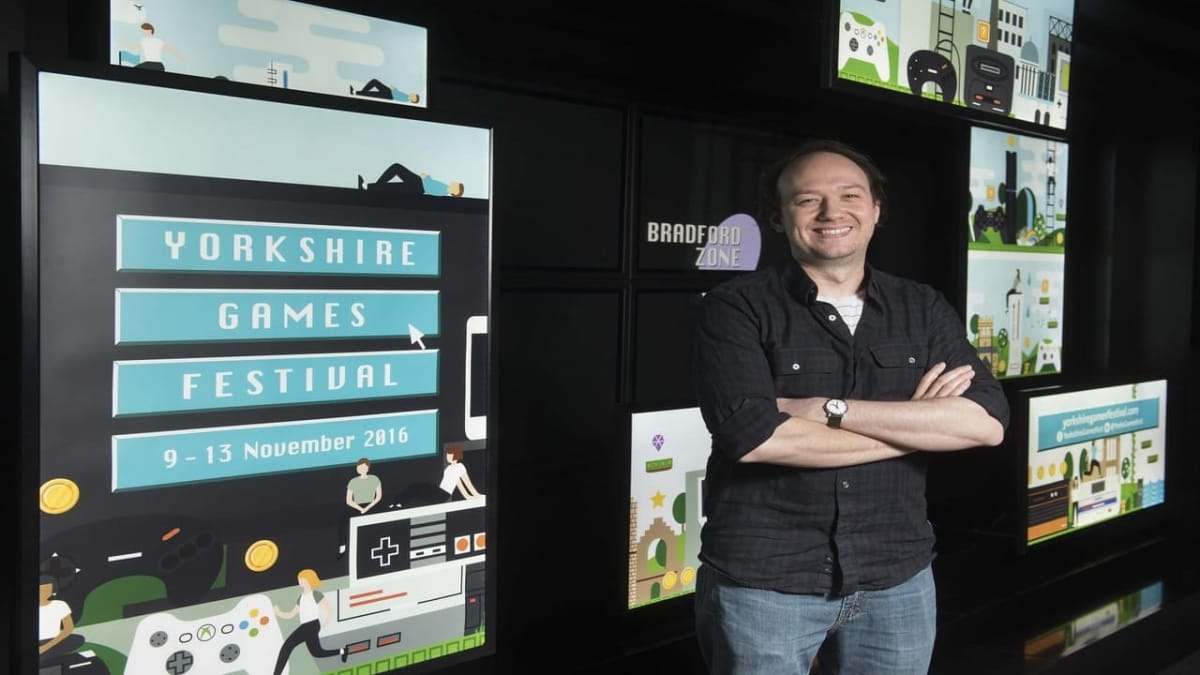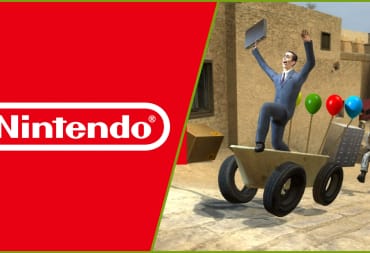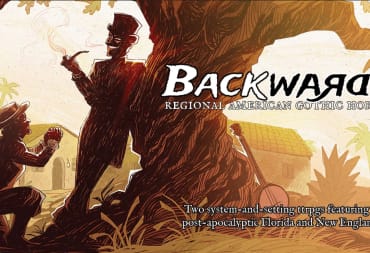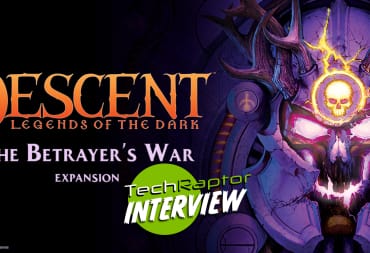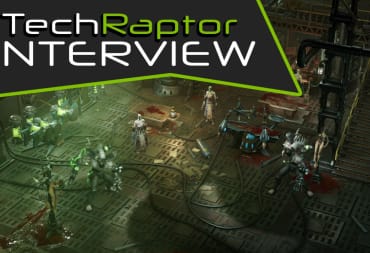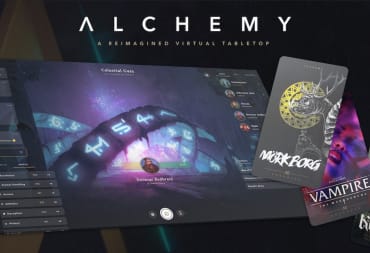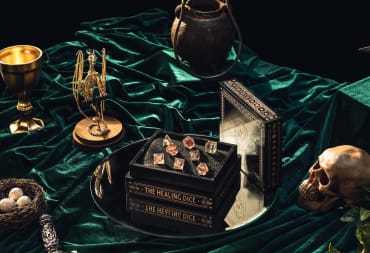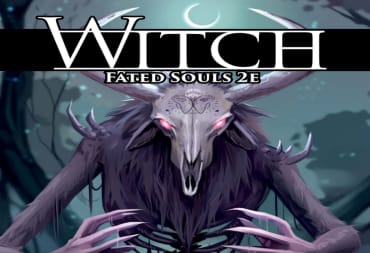In our next interview from the Yorkshire Games Festival, TechRaptor's Dom O'Leary speaks to Kevin Carthew, the Creative Director of Team17, about the making of their latest game, Worms WMD, and what their plans are for the game going forward.
We've spoken to some amazing people at the first ever Yorkshire Games Festival but this interview is special. Team17, based in Wakefield, are one of Yorkshire's oldest developers and arguably the most prominent. As such, they are de facto guests of honor at the first games festival to be held in their own county, and as well as Kevin giving a talk on the making of Worms WMD, the team has brought their iconic franchise to the festival for fans to play.
Kevin Carthew joined Team17 around the time Worms Armageddon was being developed prior to its release back in 1996. When he started out, he was play testing the game and has since risen through the company to become the Creative Director. With this in mind, we wanted to tap into that in-depth knowledge of Team17 and get some more information on the basis for the decision to base Worms WMD on the 90's classic Armageddon. This choice was much more than a cosmetic nod to nostalgia; the team literally went back and based Worms WMD on the code base of Armageddon, translating that into a new engine as the basis for their new game. Team17's friendly Creative Director was also kind enough to share some details on the strategy for updating Worms WMD in the future. So without further ado,
TechRaptor: Nice to meet you, Kevin.
Kevin Carthew: Likewise
TR: What I wanted to focus on was that decision to go back to Worms Armageddon and look at that. Where did that come from first of all?
KC: It came from the fact that, ever since Worms Armageddon, Worms has had a real loyal enduring fanbase. There are still people now that are playing those games that are almost two decades old it’s almost strange, every year they run a site called the ultimate site that has the worms Olympics every year, there’s a site called WMDB.org which is the worms maps database they’re building maps for it, day in day out, it’s a huge thriving community. They’ve almost re-appropriated the games, they don’t play it like traditional worms but make up their own games like rope races and things like that. So we looked at that and thought which is the worms game that’s, not just the most commercially successful but the one that has the strongest community and has held on to its fanbase over the years and the answer to that is unquestionably Worms Armageddon. So the start of Worms WMD and why we chose that engine was all a process of trying to figure out what it was about that early game that made people stick around and play it for so long, what was so special about it, why this game and not all the other games.
TR: That’s interesting, so how much did you actively engage with the community, did you go out and talk to people, was there market research, how did that work?
KC: We did actually talk to them during development yeah, they can be quite a militant community at times, they’ve got quite strong opinions about worms but that’s cool, it’s good because they’re genuine fans of the title and why shouldn’t their opinions be heard? We’ve got a couple of guys at Team 17 who are community managers who run the site and they were in dialogue with the community all the way through it and then early development wasn’t necessarily about engaging with the community, it was more about trying to stay true to the physics and the feel of Worms Armageddon and we had the code base so we felt quite comfortable on that front, so we didn’t feel we needed too much of the community’s input there. Having said that, at the same time kind of in stealth mode all of our developers were all over the sites and the message boards reading about what the community did and didn’t like and getting the lay of the land, so to speak.
TR: From your perspective, how was going back and looking at that old game—how did that feel? How many of the team at Team17 are left that actually worked on Worms Armageddon, if any?
KC: Maybe one guy, well, actually that’s not strictly true. When I joined Team17, Worms Armageddon was actually the first game that I worked on but as a play tester, I wasn’t actually involved in development. One of the programmers, although he didn’t do a lot of the core engine stuff he was more involved in the UI kind of things, he worked on Armageddon and WMD. From the core team though, virtually no one from that core team is still at Team17 now. So we weren’t exactly reinventing the wheel but it’s not like those guys were around to inform us or guide us or tell us what to do. We were entirely reliant on the designer’s instincts and the old code base.
TR: So I guess it must have changed quite dramatically over time as to how you make a game, what were the main difficulties in translating that old code to a new engine, given that you created a new engine for the game despite using the Worms Armageddon code as a base?
KC: That’s right, it is a brand new engine. The main difficulty, in terms of trying to capture the feel of Worms Armageddon is … I know one of the things was that the original engine used fixed math, rather than floating point math, I can’t elaborate on that too much as I’m not a programmer but I know that was a challenge for the tech guys working on the new engine. For us as designers, once the coders have done their side of it it’s not like it’s a one to one mapping, it’s not like they can take the code base of the old game, update it and it’s just like hey plays just like Armageddon, it all just works because, you know, the worms are different sizes now, the landscape resolution is different, the screen resolution is different, so just naturally things are bigger and smaller and different proportionally and all the rest of it. Then it’s a case of the designers having to go through every single feature with a fine tooth comb and say does this feel right and if this doesn’t feel right what can be done to make it feel right and iterating and iterating until we’re in a place where we’re happy with it.
TR: In terms of building that then, what were the key decisions you had to make? You talked on stage about the new features, do you feel that those were key to it being well-received, was it the basis of the game, or a combination of both?
KC: I think it all starts with the engine, it starts with having a solid feeling for the experience and that isn’t really anything to do with the new features if I’m honest, it’s just about the essential features of the game feeling right and playing right. So we were treating the importance of getting everything balanced properly and getting the engine right almost as a platform to build on, if the engine sucked if it didn’t feel right, it wouldn’t matter what the new features were. I would place probably about 60-70% importance on the core experience feeling solid and feeling right and then the new features they augment that, they improve it, they build on it. They give somebody a reason to play this version of Worms who might be a lapsed Worms player because ‘oh cool it’s got vehicles now, so I can drive a tank or I can stomp around in a mech suit.’ As much as they add to gameplay they also act as a reason to pick up the game or return to the series because this time it has something new that you haven’t seen in previous games.
TR: I was pleased to see the return of terrain generation in the game, the seed system, and map customization. That was fun to play with, is that something you see as a core feature of the Worms experience, that kind of customization?
KC: Yeah absolutely, because it’s always been there right? You can play Worms without random maps but it’s a worse game for it. Yeah, I guess that is one of the flagship features of Worms it’s always had customisation in it, even in the first version of worms you could name your team, name your worms, change the speechbank and people get a kick out of that and I guess we’ve just added to that over the years. Is it a core feature? Yeah, I think it’s hard to imagine a Worms game, at least a traditional Worms game, without some kind of random map generation.
TR: Can you tell me a little bit about how that seed system actually works? I mean, you can type in anything and it’ll come out with a string of numbers and a map, where does that come from?
KC: Good question, I don’t actually know [laughing]. I guess that on the code interface side of it there’s a lot of inputs in terms of what template does it pick to get started from. Essentially the map generation has a lot of templates, if you look at them they don’t look like anything they just look like little points in space, little nodes and the random number determines what node to use and what landscape piece it picks and it puts that in there. Then each landscape piece has little nodes and it picks the next random node to use and it just builds out procedurally from there. So whatever those numbers or letters are, it all gets translated into a random number, that random number gets fed into the landscape generator and that random number is the basis for how that random number generator builds the landscape.
TR: Wow, okay, that’s interesting… Maybe not for all our readers but for me at least.
[Laughing]
TR: So, you said as well in your talk that you’ve only just started with Worms WMD and you’re looking to update and iterate on that as you go along. Are we talking about large DLC releases or smaller piecemeal updates to add specific improvements or features into the game?
KC: It’s going to be a bit of both in all honesty, we’re making an announcement on that very soon but it’ll absolutely be both. So, we’ve got a continued program of improving the game, that’s things like adding small new features in, continuing to balance the game, responding to the community, but at the same time we do plan on bringing some hefty new things to it, new content packs and we’ll be announcing the first of those shortly.
TR: I played the game on consoleM so I don’t know first hand but obviously you have massive PC support. Do you engage with the modding community at all, have you seen what they’re starting to do with your game yet?
KC: Yeah, we absolutely do engage with them, both the community managers and the developers, we keep an eagle eye on the forum we literally check it every day. One of the first features that the community kicked and screamed for, almost, was the ability to import images into the landscape which is feature that had been in previous Worms games. So any picture that you want you can put in there and we’ve seen all sorts of weird and wonderful things. One of the most popular maps to play on is a large, blown up, picture of Ainsley Harriott for some strange reason. That’s quite nice because the modding community, we’re seeing that they have a lot of traits of the old community in that they’re really interested in the map generation, they’re interested in designing maps and playing the game, for them, isn’t necessarily just about playing the game but building maps and modding for it as well. That’s something that keeps people in the game and that’s another string to the game’s bow that gets them engaged with WMD.
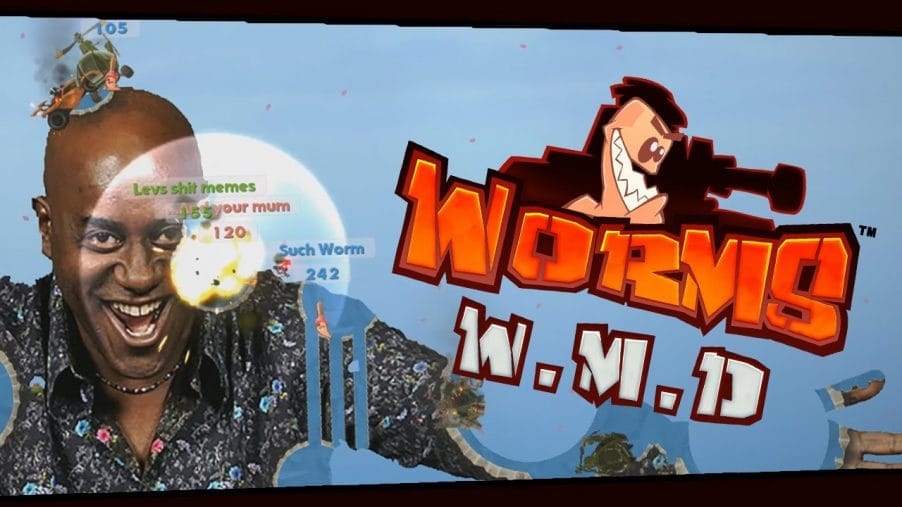
TR: I’ve heard from a few developers recently who are working with that kind of scene on PC. I spoke to Creative Assembly who obviously have a big modding community around Total War. They were saying how they see that as a valuable way to engage with the fanbase and a way to advance their own marketing. Are you doing a similar thing with your community, promoting gameplay videos or anything like that, for example?
KC: Yeah, we absolutely are, we have a couple of community managers and that’s their full-time job if you like. They do, I think it’s called teamster Thursday’s, I should know really, I think that’s what it’s called, where the team gets together in the office to play the game and they try out new weapons, showcase new vehicles, so yeah we do a little bit of that. I’m not really involved with that side of it though, it’s handled mostly by our community managers.
TR: So, as Creative Director of Team17, one of Yorkshire’s oldest developers, what does it mean to you to see a festival like this happening in Yorkshire?
KC: I think it’s awesome, I think it’s absolutely awesome and I genuinely hope it’s back next year and I genuinely hope it grows as well. We’ve got quite a few decent sized developers in Yorkshire, our output is of a really high quality. I hope to see even more of that coming through in the future. You know, why wouldn’t this be a fantastic thing for the region, to get people coming out of University to give them a chance to speak to the people who make games and to get them involved with making games themselves. Yeah, it’s absolutely fantastic and long may it continue.
TR: Something that interested me from your speech, you mentioned working with local indie developers, can you tell us a bit more about how Team17 approaches that?
KC: Yeah sure, so it’s not just local indie developers it’s developers of all calibres Team17 right since inception in 1990 has always helped bring other developers games to market as well developing our own games internally. But I guess about two or three years ago we decided that’s something we want to get back to in a more involved way. So we look for concepts that we like, case in point being The Escapists - our managing director Debbie Bestwick found it on Kickstarter, absolutely loved it and made Chris an offer to help co-develop the game with them. In fact, that’s not entirely true, Chris did most of the development work himself and then we helped to bring it to other platforms but we would have funded the game we would have guided it and then when the game was ready we did PR and marketing for it. That’s a concept that really originates outside team 17 but we can help to bring it to the finish line.
It’s something we’ve done several times now we do it in all sorts of different ways. Sometimes when we work with a team, say a team like Playtonic developing Yooka-Laylee, they’re an experienced team and they don’t need our help really with developing the game but where we’ll support them is with the commercial side of it, marketing the game and so on. A game like Sheltered, that’s another game we found through Kickstarter, again, liked the concept but with that one we actually helped with the development of the game. The two creators Dean and Sunny came into our office and worked with our team and we helped to build the game with them. So when we look at the games label it’s not one package or one type of thing that we do we offer a broad range of services to work with partners on games that we’re really interested in and we can see the potential in and games that we really like at the same time.
TR: Excellent, so what are you most excited about that’s coming from that side of the business at the moment?
KC: Well it’s got to be YookaLaylee, right? It’s a spiritual successor to the old 3D platformers, really talented, really well-experienced team, beautiful game. I think it holds the UK record for the fastest game to get to a million pounds on Kickstarter, it was a phenomenal success and when we showcase it on stands at places like EGX and Rezzed the lines for it are literally round the block and deservedly so cos it’s a fantastic title, it’s shaping up to be a great title and we’re really looking forward to it being released.
TR: Are there any smaller projects that we might not have heard of yet?
KC: Let me think about that… Well, there are, but they haven’t really been announced yet so there’s not too much I can say about that, sorry.
TR: No problem, so Team17 is showing off Worms WMD at the games showcase tomorrow, is that an attempt to bring that to a wider audience?
KC: It’s more about what we said earlier about the festival being great for the area. We’re saying that yes it is and we want to support it being a Yorkshire company. That’s why I’m here giving this talk and why we’re bringing Worms to the games showcase and it’s not even really about bringing that to a wider audience, even though it will and it helps, it’s more about supporting the festival and doing our bit for Yorkshire games development.
TR: Looking at that then, obviously there are developers like Sumo Digital in Sheffield and yourselves in the local area, but how have you seen the Yorkshire development scene change since you started at Team17?
KC: It’s been up and down, really, when I first started at Team17 there were a lot of developers in the Yorkshire area and I mean big studios, Sony had offices in Leeds, Gremlin in Sheffield – a lot of Sumo’s guys came from there. There was Runecraft in Dewsbury, so yeah they were all medium to big sized studios and some of those fell by the wayside over the years. A couple, such as ourselves, endured that time. Now what we’re seeing is the rise of indie. There are probably more studios about, but studios of a smaller scale. There are more kids coming out of university and having to do it themselves, set up their own companies and I hope that happens more, I hope we get more competition because it’ll be good for the region, good for games, and good for games developers.
TR: Do you see that collaborative aspect between developers as important, as with the indie developers Team17 works with, and do you see that happening more now?
KC: Well that’s the funny thing about the wider games industry, that only happens once games are released. Unless you’re in a working agreement with a partner like with us and the indie studios, you tend to be quite secretive about what you’re working on. I guess that’s for reasons of non-disclosure agreements, sometimes for marketing reasons that we don’t want something leaking. I’m not really sure why but it does tend to be that what you’re working on is a closely guarded secret known to you and your teams and that tends to be strictly observed, thing don’t tend to leak out. It’s not for protective reasons, or not wanting to share information, it just seems to be the way things are at the larger companies.
TR: Do you think there could be more done there, would you like to see more companies working together, sharing knowledge and expertise?
KC: There’s definitely more that could be done. Would I like to see it? Yeah, I guess I would, what would be wrong with that? It would be great to see people working together, helping each other, sharing knowledge. I’m going to be sceptical and say I don’t see that happening anytime in the near future [laughs] but yeah, why not, sounds like a nice idea.
TR: Nice thought. Going back to the updates we were talking about to Worms WMD, are we likely to see the same kind of content across PC and console?
KC: Broadly yes, the update program we have in place is not limited to one platform we want to do that across all platforms. Some of the updates that we have already brought to the PC version aren’t on console because they’re not a good fit for console. For example, we recently enabled global text chat for the PC so even before you enter a game you can chat to other players in a lobby and so on. We didn’t bring that to console just because it doesn’t make sense without a mouse and keyboard. So there will be some features that don’t go both ways but broadly yes, we are going to update all platforms.
TR: Good to hear. Something I wanted to ask, going back to mods, recently some companies have looked into bringing mods to consoles and either succeeded with limitations or foregone it altogether, is that something Team17 have looked at?
KC: I’m going to be honest and say no, we haven’t looked at bringing mods to consoles. The reason would be… just the development work it would take. I would take a guess and say a team like us could probably use that development time better by working to support the game, add new features to game, rather than spending a lot of time and investment to bring a modding component to consoles when we don’t know how much call there is for that or even if there’s an appetite in the community on those platforms. I would guess not but I’d be happy to be proven wrong.
TR: Thanks for the insightful comments Kevin, it’s been great to meet you and great to see Team17 supporting the Yorkshire Games Festival. That’s all we’ve got time for, so thank you for agreeing to speak with us.
KC: My pleasure, I hope we’re here again next year.
We hope you enjoyed the latest in our series of interviews. You can find our previous interviews from the festival with Rob Bartholomew, Rhianna Pratchett, and John & Brenda Romero at the links provided. You can also find our review of Worms WMD, which we called "the best Worms game since 1996," here.
Have a tip, or want to point out something we missed? Leave a Comment or e-mail us at tips@techraptor.net
